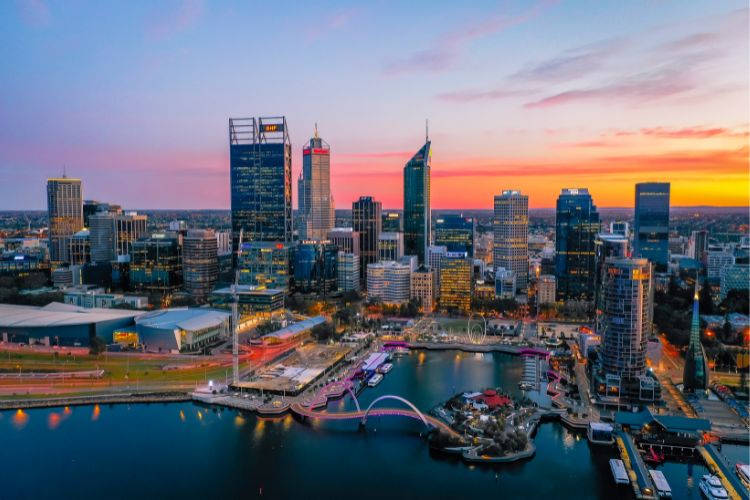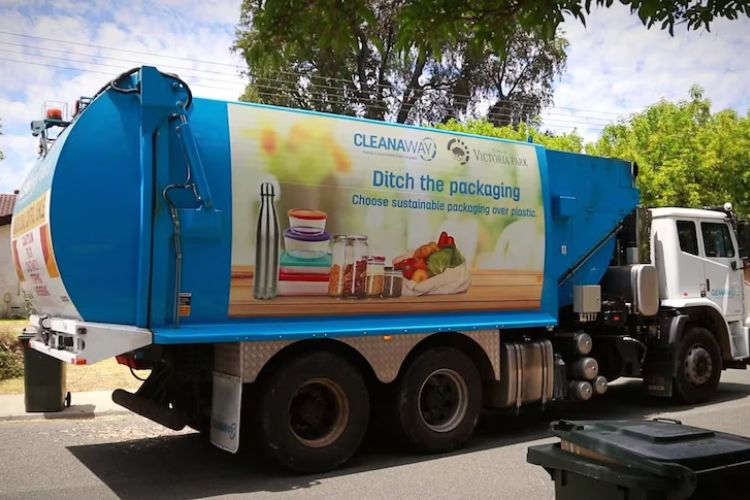Here at Best Price Skip Bins Perth, we’re dedicated to not only serving our customers to the best of our ability but also to ensuring we provide a sustainable, eco-friendly service.
Part of our duties, therefore, include uncovering and sharing facts related to recycling in Perth.
This in-depth look at Perth’s waste and recycling statistics is meant to provide a deeper understanding of how we’re doing as a city in terms of our goals for reducing waste and recycling more.
We’ll look at many different aspects of waste and recycling in Perth, including what is being recycled, what isn’t and what needs to be improved.

Uncovering the Facts: A Comprehensive Look at Waste and Recycling Statistics in Perth, Australia
Perth is the capital city of Western Australia and is a relatively small city, the fourth most populous in Australia.
A city that has seen continuous and steady growth for the past 40 years, Perth’s future as a leading light in terms of sustainability is important to its decision-makers and residents alike.
How much waste is produced in Perth each year?
Every year, the city of Perth produces around 350,000 tonnes of waste. Much of the waste comes from households based in the more populous suburbs.
How much of this waste is recycled?
In a typical year, Perth recycles around 1.3 million tonnes of waste. The recycling rate is 68%, which is impressive and higher than the national average of only 60%.
What are the most common items that are recycled?
In Perth, as in all Australian cities, the most commonly recycled items are as follows:
- Metal, including aluminium cans
- Plastic
- Cardboard and paper
This is possible because metal does retain value, and so people are often motivated to recycle it because they will get paid for their efforts.
What are the most common items that are sent to landfill?
Across the rest of Australia, the most common items sent to landfills include putrescible waste such as old food and organic materials. This is in addition to paper and cardboard and some soft plastics, such as those used in packaging, which are not as easily recycled as other plastic types.
How much waste is produced per person in Perth each year?
This is harder to pin down accurately because the fact is that the consumption of food and other items can vary widely per person. Other factors come into play, such as seasonal consumer habits, which alter depending on the time of year and the changing economic status of each person.
How does this compare to other Australian cities?
In other Australian cities, it’s a similar problem. It is very tricky to come up with an entirely accurate figure.
As of September 2021, residents of Sydney were reported to have generated the highest amount of waste.
What initiatives are in place to increase recycling rates?
The Perth authorities have produced guidelines for “Better Practice Organics Recycling”, which aims to improve recycling facilities.
The W.A. government has also imposed a ban on all E-waste in landfill. This is an important step towards improving the current situation, which sees a large amount of E-waste going into landfill sites.
E-waste contains harmful chemicals which damage the water table and affect air quality.
What are the challenges associated with waste management in Perth?
The challenges facing waste management leaders in Perth are numerous. In addition to a real need to improve waste management facilities and processes, there is an urgent need for education programs that will aid the public in their efforts to reduce, reuse and recycle.
Associated Costs
The costs associated with waste management are numerous, but the most important are as follows:
- Removal of waste
- Transport of waste
- Storage of waste
- Waste processing
If you are a householder or business owner looking for an affordable way to manage excess waste, review the list of the best skip bin hire companies in Perth by region. It also highlights reviews so you can make an informed decision.

Image credit: www.abc.net.au
Environmental Impacts
Currently, Perth is struggling in a number of areas. One particular concern is the amount of plastic found in the Swann River. The Department of Biodiversity and Attractions surveyed 12 sites associated with the river last year and uncovered many small plastic pieces contaminating the water and land.
Plastic poses a real threat to wildlife and needs to be addressed immediately.
Waste and Recycling Trends in Perth
The trends in waste and recycling in Perth currently involve a push towards shopping for clothing that has less environmental impact, including second-hand clothing and clothing produced from recycled textiles.
In addition, people are also very keen to use less plastic in their food packaging, so glass bottles for drinks and foods wrapped in paper rather than plastic are growing in popularity.
What can I do about it?
As with any big problem, all it takes is for everyone to make an effort. This includes buying fewer things that impact the environment negatively, such as plastic items, and recycling and reusing more.
If you can, consider organising a local litter-picking party. You can join a group via social media or leafletting your neighbourhood. Also, visit the Perth government website to learn more about local classes and initiatives to help you recycle more.
If you are in a position where you need to dispose of a large amount of waste, consider skip bin hire. Skip bin hire is an eco-friendly and affordable waste management method for householders and business owners.
Check our article on Council Permits for Perth Councils to learn whether you need a permit.
Final thoughts and key takeaway
As far as recycling goes, Perth is consistently improving the current situation.
With a far better recycling record than other Australian cities, Perth is doing very well in reducing, reusing and recycling.
As the government improves recycling facilities, this will only improve even further.
